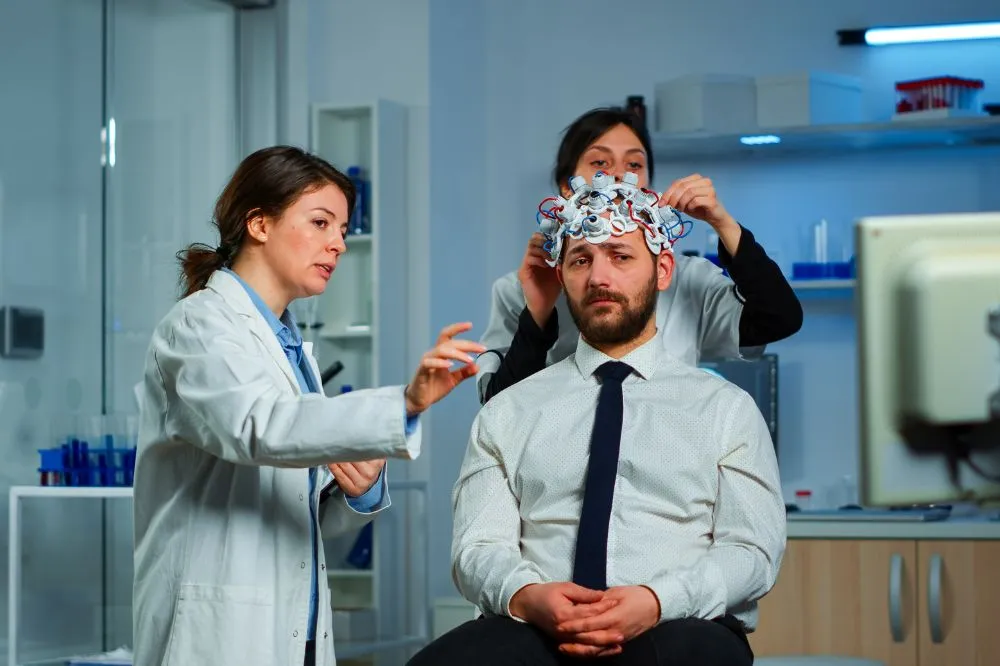Summary: Early studies show that BBB disruption is found in those diagnosed with neurodegenerative disorders like Alzheimer’s. However, till now, researchers have assumed BBB merely as having a barrier function. But, a new study suggests that BBB can modulate the working of neurons and thus may have a greater role in the development of neurodegenerative disorders.
Neurological disorders like Alzheimer’s, Parkinson’s, and many others are on the rise. However, despite the increase in neurological conditions, doctors and researchers have struggled to explain the cause of these health disorders.
Painkiller addiction help and suboxone treatment have become critical in managing symptoms of these conditions. Since more than a century of extensive research has failed to answer many critical questions, researchers have recently changed their approach. They think that one of the reasons why studies have failed to understand conditions like dementia well is due to undue focus on neurons. In recent years, researchers have started focusing on other brain cells. Thus, they have been focusing much on glial cells that support and modulate neurons. Glial cells also play a vital role in the brain’s immunity and inflammation.
Now a new study published in the Proceedings of the National Academy of Sciences (PNAS) shows a new way in which the blood-brain barrier (BBB) may be contributing to the rise of these neurological disorders. Though science has long known about the existence of BBB, similarly, science has known that BBB is disrupted in those diagnosed with conditions like Alzheimer’s or Parkinson’s. However, till now, researchers have assumed that these changes in BBB are secondary to specific pathological processes.
Moreover, for decades, researchers have made some simple assumptions, like BBB is merely a barrier to certain substances. For example, they have assumed that it is quite like face control in reputed restaurants and bars, which means that BBB only allows specific kinds of molecules to enter the brain. However, now researchers are saying that BBB has a more significant say in brain functioning. What if it is not just letting in specific molecules but also showing them the way? What if it is regulating the traffic of specific molecules actively and thus modulating the working of the neurons? This is precisely what the new study suggests.
The new study suggests that BBB can act as a filter and modulate the working of neurons. After allowing certain molecules to enter the brain, it can also regulate their movement and thus influence the working of neurons. Researchers used firefly larvae for their study, as their BBB is quite similar to mammals yet simpler to study. In the firefly, specialized glial cells act as BBB, quite like epithelial cells in vertebrates.
In the study, researchers focused on enzymes called metalloproteinases since these enzymes can interact with glia and neurons. Using a special technique, researchers identified something called Notch signaling. They have found that this signaling occurs both in fireflies and humans. Investigators in the study say that they were not planning to study Notch, but they discovered that it played a vital role in maintaining BBB. They found that Notch signaling plays an important role in maintaining the overall BBB structure. They found that when the Notch signal is blocked, it also results in BBB disruption. It means that this signaling pathway can influence the fundamental working of the nervous system. It can even affect the release of specific neurotransmitters.
They also found that under specific conditions Notch signaling could influence how neurons fired, even when BBB was intact. This indicated that BBB function is not just of the barrier but can also modulate brain functioning. It also means that BBB breakdown might have a greater role in developing various neurological disorders. Researchers say that the breakdown of BBB does not just mean a leaky barrier. It also means changes in the working of the brain.
The idea that BBB can influence the working of neurons is entirely new. Researchers say that these findings have provided researchers with a new direction. They need to explore the role of BBB in Alzheimer’s and other neurological issues by keeping these new findings in mind.
To date, very little is known about the role of Notch signaling and metalloproteins in the human brain. Thus, there is a need to focus on them. In addition, developing a better understanding of BBB will help develop a better understanding of neurodegenerative disorders and find effective treatments. It is our mission to bring real hope and transformational change to patients who would otherwise be consigned to a lifetime of medications, doctor’s visits, and suffering. We expose misaligned incentives and return the power of health to the individual. We believe empowered individuals change their communities. We use a combination of lifestyle intervention, medication management, and emerging scientific research to help our patients. When you are ready or have questions, reach out.
Medical Disclaimer: Keep in mind that the content provided is not direct medical advice for patient care, but is provided for thoughtful discussion.






